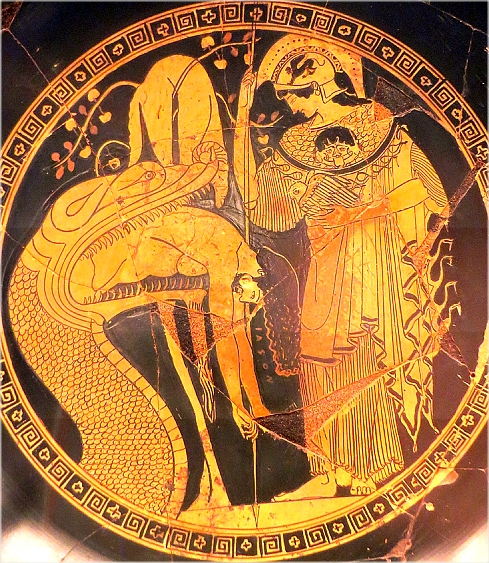
Medea rescues Jason from another tight spot
This is also the period in which writing became dominant, both as a means of composition and of reception. Apollonius writes the first secondary (literary, rather than oral) epic poetry. Aratus writes about visible signs in the heavens which are like writing; we'll also encounter acrostics and even a pattern-poem.
In the mid-3rd c., the Jewish community in Alexandria found the need to translate their scriptures into Greek, so we'll read a sample of this too.
Finally, we'll sample the scientific output of this period by reading from Theophrastus Enquiry into Plants and from Archimedes' account of his own integral calculus and his account of Aristarchus' heliocentric theory.
Formal
Details
10 meetings on Tuesdays (2.00-3.30 pm)
Term dates: 14 Jan - 24 Mar 2020
Venue: The Folk House, 40a Park
Street, Bristol BS1 5JG
Directions: see https://www.bristolfolkhouse.co.uk
Class size: 8-10
Course fee: £120 (£80 unwaged)
Materials will be supplied.